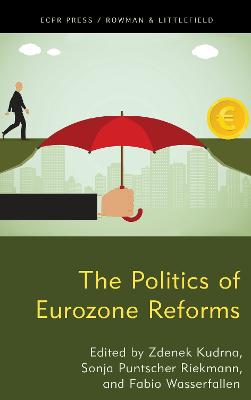The Politics of Eurozone Reforms
Recent Eurozone reforms mark the most profound deepening of European integration since Maastricht. This book analyses how member states formed preferences in the politics of these reforms, and how preferences translated into policy outcomes on the European level. The chapters summarize insights on the role of different actors and institutions from four datasets based on 200 expert interviews, the analysis of 5000 policy documents and constitutional court cases in all EU member states. The findings confirm some common wisdom, dispel some myths, and provide insights into mechanisms facilitating further reforms. While quantitative analyses show that 'Northern' and 'Southern' member states were deeply divided, case study chapters provide more refined view. Empirical data also indicate that reform decisions were dominated by governments and EU institutions but dispel the notion that Germany alone imposed its preferred policy. This book goes further and unpacks the legacies of the EMU crisis that make future reforms dependent on the reduction of financial sector risks, which is a necessary condition for rebuilding trust and restarting the gradual convergence of Eurozone reform preferences.
-
Curatore:
-
Editore:
-
Anno:2021
-
Rilegatura:Hardback
-
Pagine:174 p.
Le schede prodotto sono aggiornate in conformità al Regolamento UE 988/2023. Laddove ci fossero taluni dati non disponibili per ragioni indipendenti da Feltrinelli, vi informiamo che stiamo compiendo ogni ragionevole sforzo per inserirli. Vi invitiamo a controllare periodicamente il sito www.lafeltrinelli.it per eventuali novità e aggiornamenti.
Per le vendite di prodotti da terze parti, ciascun venditore si assume la piena e diretta responsabilità per la commercializzazione del prodotto e per la sua conformità al Regolamento UE 988/2023, nonché alle normative nazionali ed europee vigenti.
Per informazioni sulla sicurezza dei prodotti, contattare productsafety@feltrinelli.it



